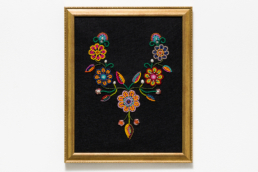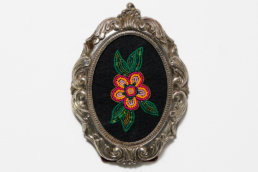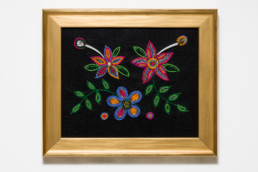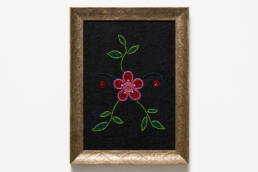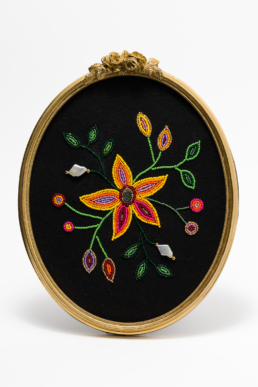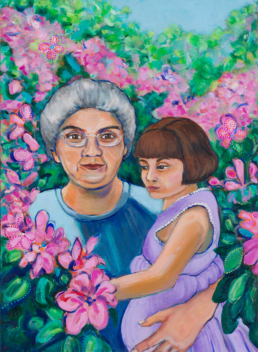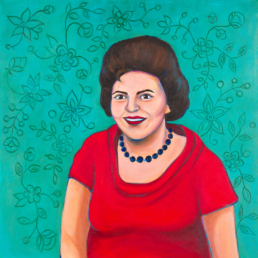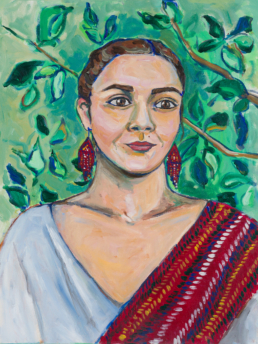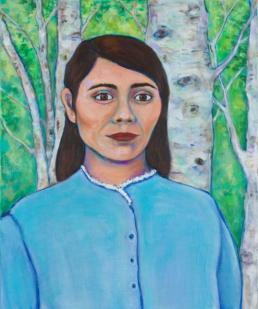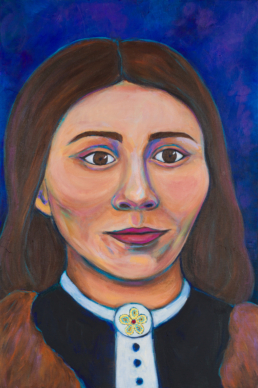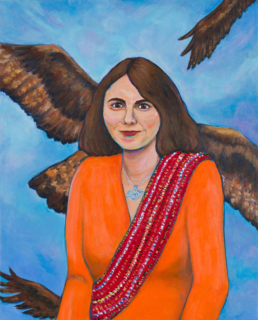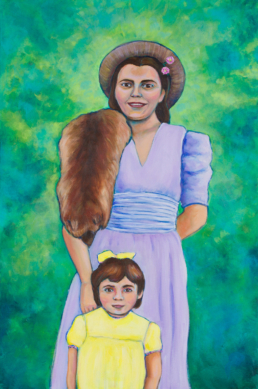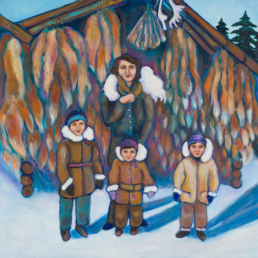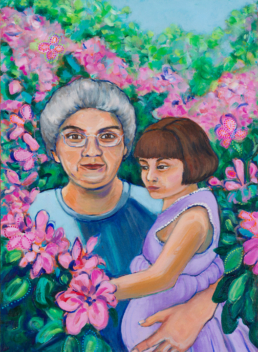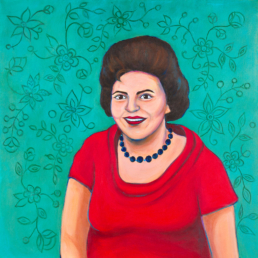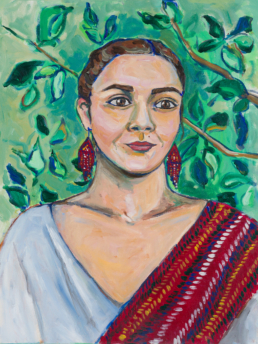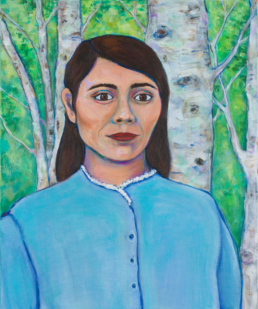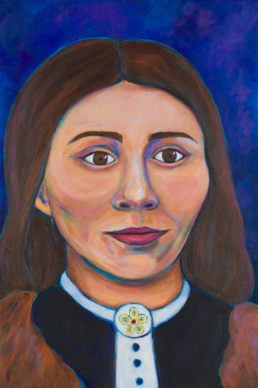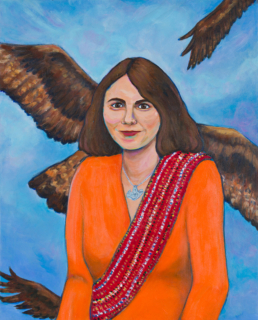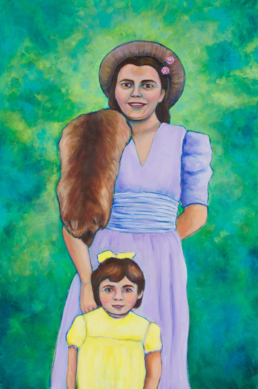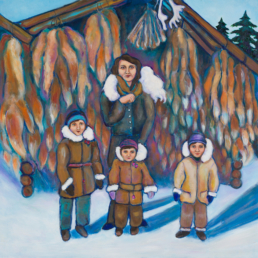September 9 – December 22, 2023
Closing reception: November 18th from 2-5 pm
Juliet Mackie: Matrilineal Memory
Curator: Alexandra Nordstrom
Shé:kon Gallery
5826 St-Hubert Street, 2nd floor
Tiohtià:ke / Mooniyang / Montreal, QC, H2S 2L7
Text by Alexandra Nordstrom
Juliet Mackie’s latest body of work is a poignant and powerful tribute to her Métis foremothers. By weaving together fragments of memory, family stories, and photographs, Mackie traces the lives and legacies of the women who came before her. Mackie’s great-grandmother, Evelyn Oak, emerges as a central figure in her work. Born in the Métis community of Fort Chipewyan, Alberta, in the early 20th century, Evelyn’s life unfolds as a testament to courage, adventure, adaptability, and resourcefulness. From her experiences in the North on a trapline with her husband Alvar to navigating the challenges of assimilation in urban environments, Evelyn’s life encapsulates both the trials and triumphs of an Indigenous woman forging her path in a changing world. Evelyn’s daughter, Greta, embodies the role of a knowledge carrier, preserving ancestral traditions and cultural practices. Greta’s journey from grappling with identity and shame to embracing herself as a cultural being mirrors broader struggles faced by Métis communities today. Her transformation into an educator and guardian of cultural skills and knowledges signifies a profound reconnection with her Métis identity. Mackie’s artistic exploration not only pays homage to these remarkable women but also delves into their stories, dreams, and legacies. The act of portraying each woman, from her great-great-great grandmothers to her own mother, creates a space of remembrance and reconnection, where the artist and her relatives meet. Painting and beading are means of communication that allow Mackie to engage in an intimate conversation with her foremothers, to visit with them, reflect on the familial stories that have shaped her identity, and honor the impact they continue to have on her life. Further, these practices allow her to explore and develop her own sense of self and belonging as a Métis woman. In this context, Mackie’s work serves as a testament to the ways in which her Métis foremothers continue to shape, anchor, and guide her movement in the world. Her work beckons us as observers to engage in contemplation, tracing the intricate threads of time, memory, and experiences that bind us to those who came before.
Juliet Mackie is Métis (Cree, Gwich’in and English) with maternal roots in Fort Chipewyan and Red River. She is a citizen of the Métis Nation of British Columbia. Juliet is a visual artist currently located in Tiohtià:ke/Montreal. Raised in the Cowichan Valley on Vancouver Island, her art practice is inspired by her love of nature, her family and Métis culture. Juliet is a painter, beader, and student. She holds a BFA in painting and drawing and is cur-rently a PhD candidate in the Individualized Program at Concordia University. Juliet’s multidisciplinary research explores portrait painting as a means of strengthening cultural identity for Indigenous women.
Alexandra Nordstrom is an art historian, curator, and writer based in Montreal, Quebec. Currently, she is pursuing her PhD in the Interuniversity Doctoral Program in Art History at Concordia University, with the support of the SSHRC Joseph-Armand Bombardier Doctoral Scholarship. Recently, she co-curated Miyo Nepin (2022) with Floyd Favel at Fort Battleford National Historic Site, Braiding Our Stories (2019) with Juliet Mackie at the VAV Gallery, and curated Poundmaker: Life, Legacy and Liberation (2019) at Poundmaker Museum and Gallery. Her writing has been featured in RACAR, C Magazine, and Room magazine, as well as the catalogue of the 6th Contemporary Native Art Biennial / Biennale d’art contemporain autochtone (BACA). Nordstrom holds an MA in art history from Concordia University (2020) and a BA in art history from the University of British Columbia (2018).
Galerie She:kon, which means “hello” in Kanien’kéhà, focuses on showcasing solo exhibitions by up-and-coming Indigenous artists. This initiative aims to uncover fresh talent and provide an opportunity for those interested in curating their first exhibition.
Acknowledgements
La Biennale d’art contemporain autochtone / The Contemporary Native Art Biennial (BACA) would like to thank the Conseil des arts et des lettres du Québec (CALQ) for their financial support.

